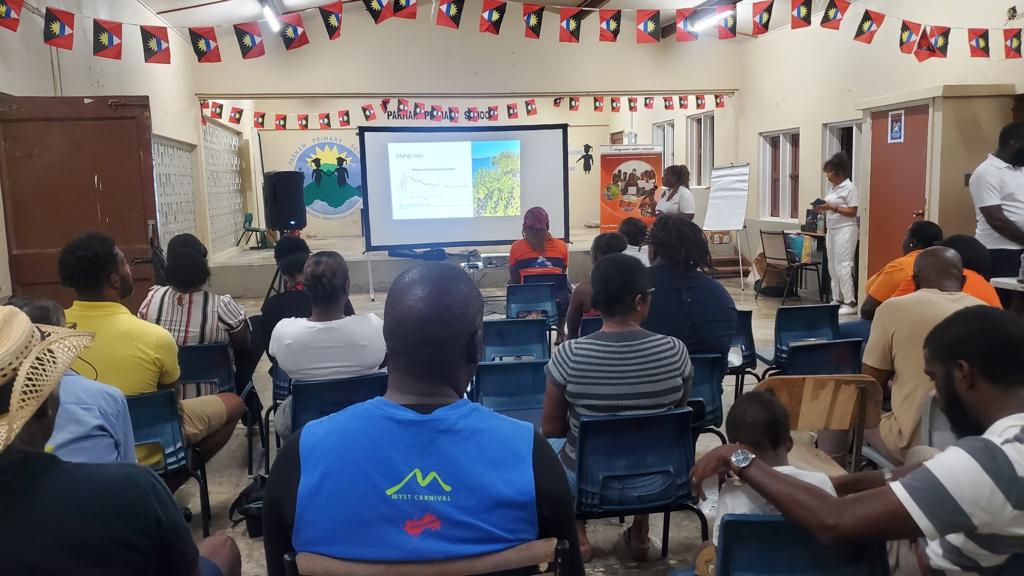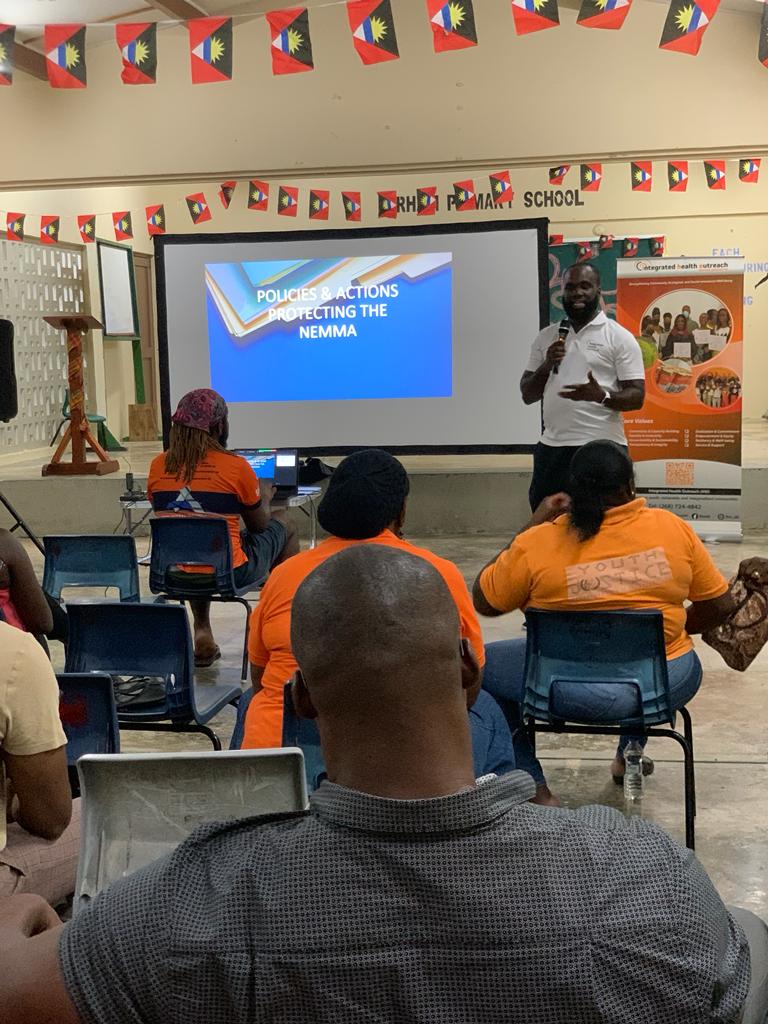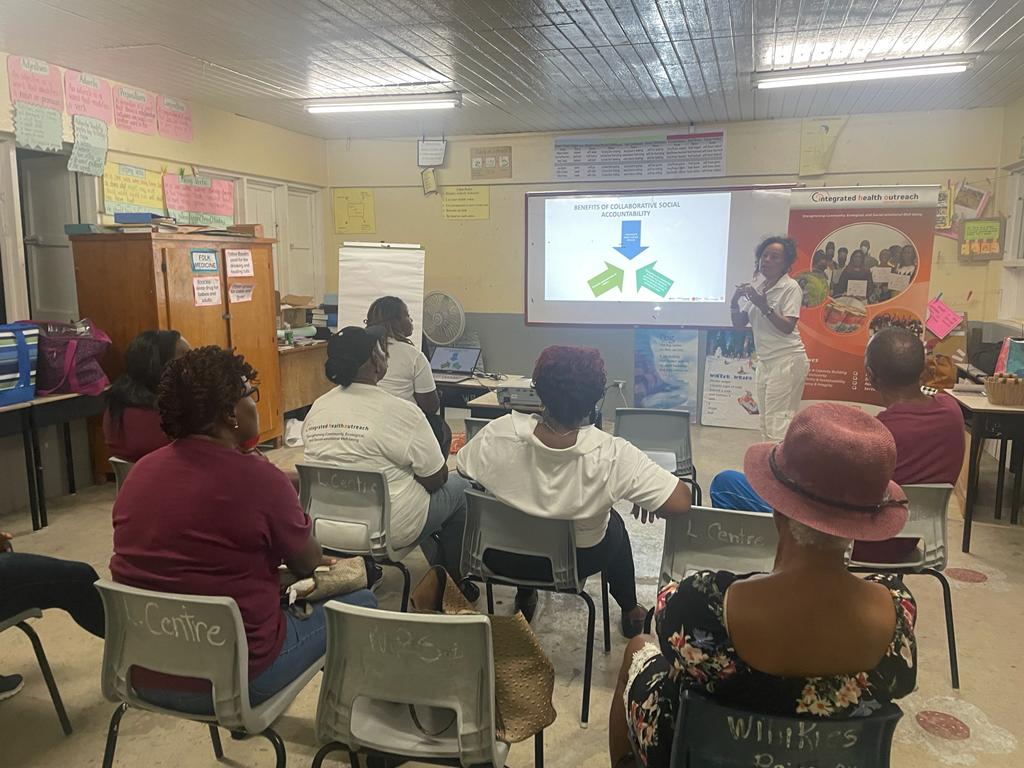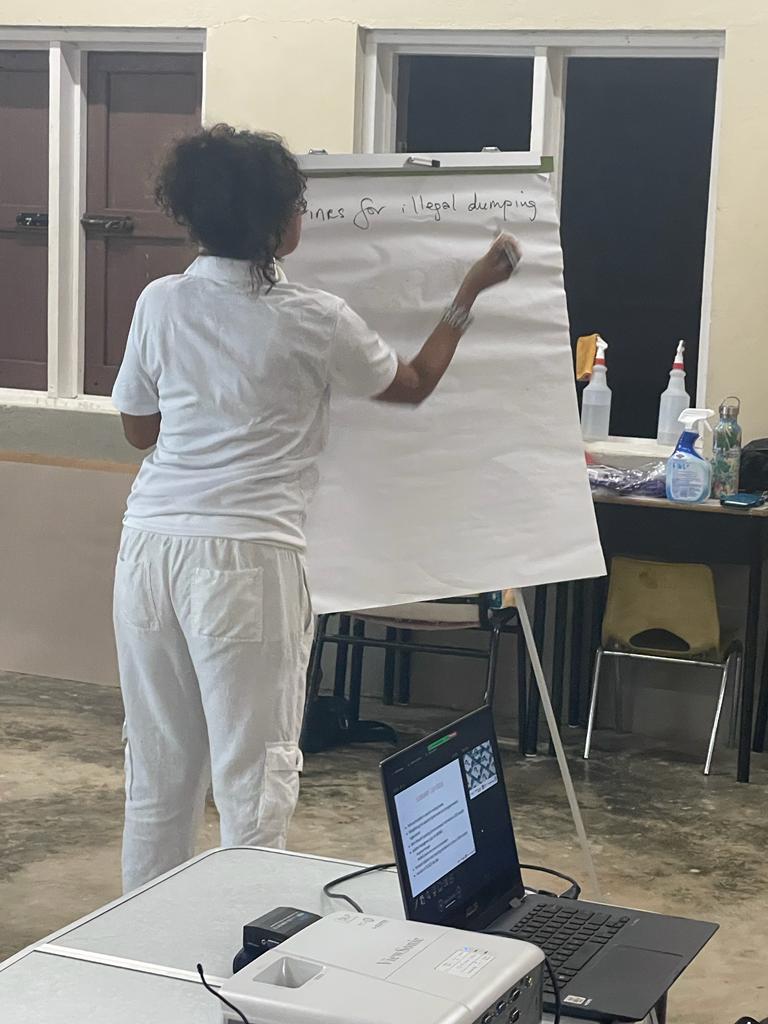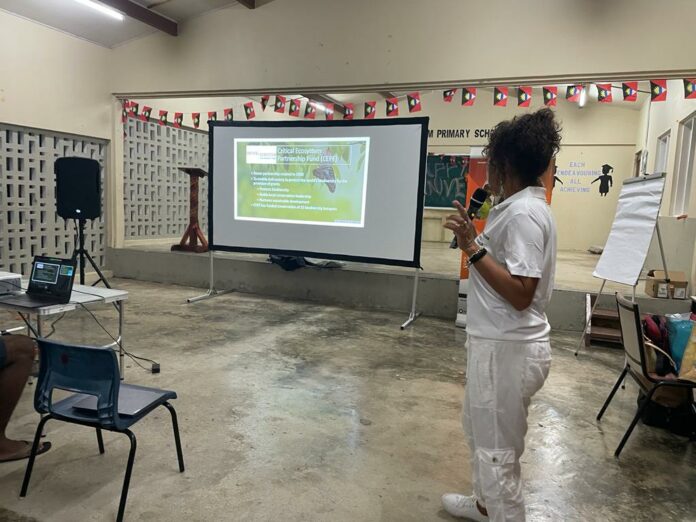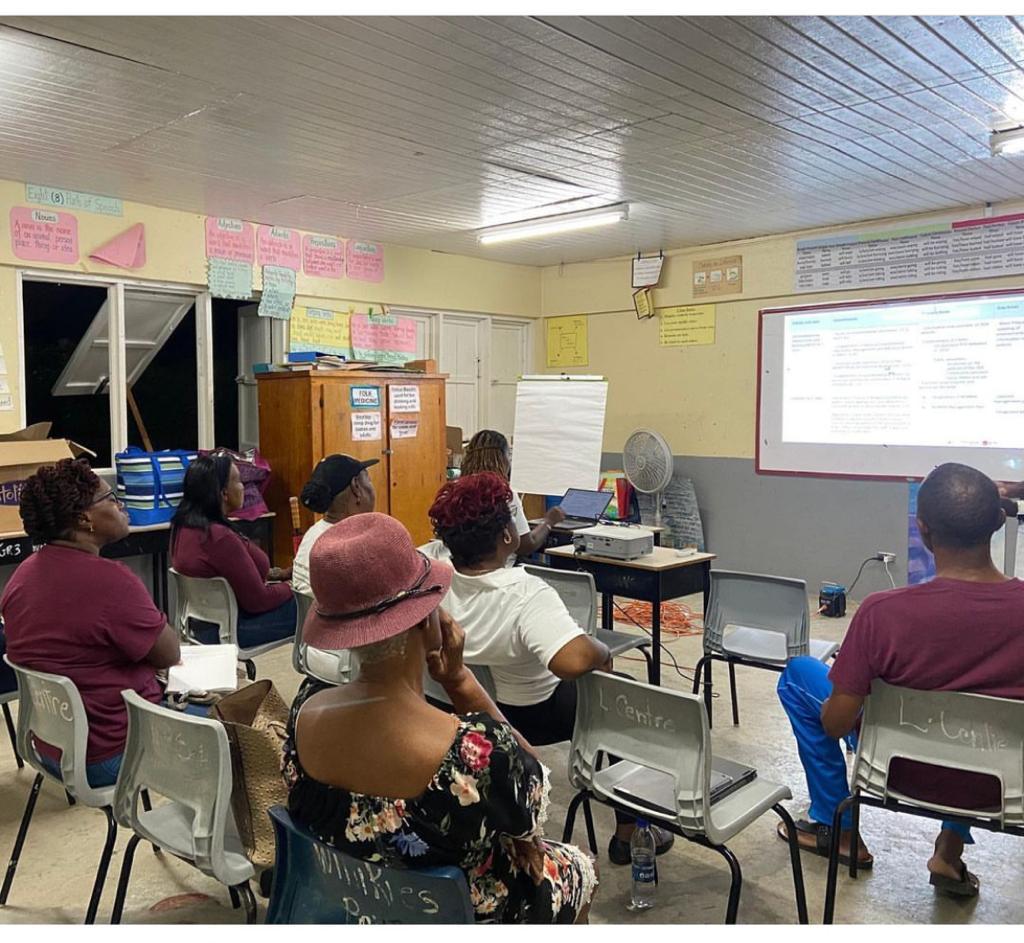
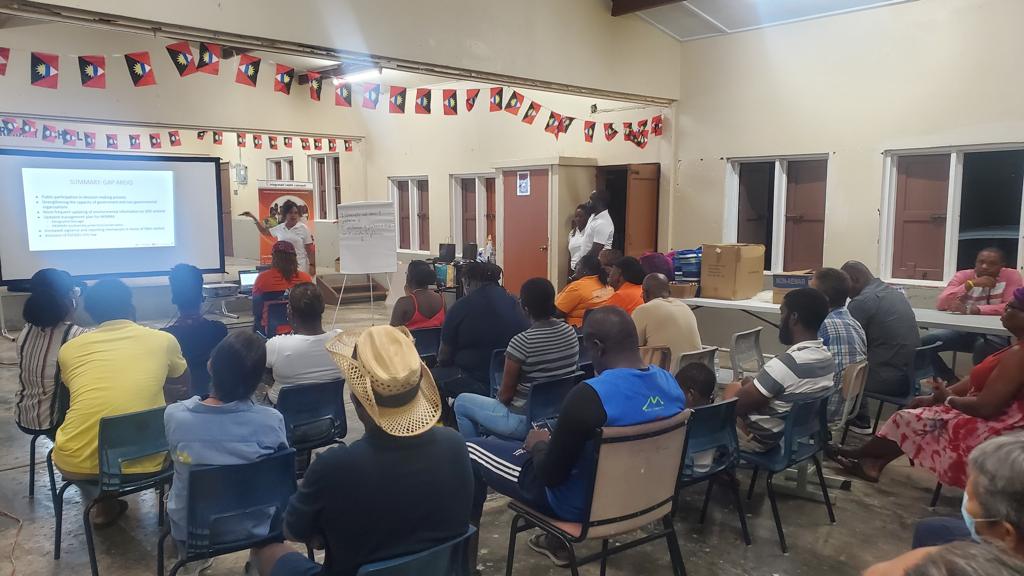
By Elesha George
After a long day of work, residents and activists gathered in Parham and Willikies and trickled into a small classroom waiting for their turn to offer ideas about how they can contribute to protecting critical biodiversity within the North East Marine Management Area (NEMMA).
They were just a handful among hundreds of residents whose neighbouring villages surround the NEMMA which is home to endemic, rare and globally important wildlife. It also encompasses 28 offshore islands and houses numerous historical and archeological sites for Antigua and Barbuda.
NEMMA is recognised worldwide as an important research and conservation site. But as with many developing countries, its designation is continuously threatened by unsustainable land and seaside development, pollution, and improper fishing methods among other things.
Integrated Health Outreach (IHO), a not-for-profit organisation, has a mandate to promote the overall wellbeing of the twin island state’s people and the Caribbean by extension. And frankly, according to Executive Director Dr Nicola Bird, “You can’t have wellbeing without it all. So, if our environment is at risk, we’re at risk”.
She said getting people impassioned about how they can be agents for their wellbeing and change is very important and often a new concept “because we think that it’s somebody else’s responsibility”.
Therefore, her message and that of the organisation is simple: communities with support from their government have a better chance of creating a balanced economy through integration that involves both the voices of policymakers and the people who reside on the island.
That is why, over the next three years, IHO will be leading a regional project funded by the World Bank to engage residents in areas like Fitches Creek, Parham, Willikies, Pares, Seatons and Glanvilles to support the NEMMA.
“We are going directly to the sources, the community groups, reaching out to the communities,” she remarked, noting that IHO is also working with government agencies like the Department of Health and Environment, the National Solid Waste Management Authority (NSWMA) and the Development Control Authority (DCA) to create a bridge to these communities.
“We’re working directly with the public sector who have committed to participate and engage in the dialogue, working to find solutions and having the community come out and have quarterly meetings to find solutions in a non-conflictual way,” Dr Bird said.
Behind the scenes, IHO has been working to inform residents about opportunities for funding and conservation as well as educating them about biodiversity, the importance of safeguarding it and how they can be involved.
So far for this project, IHO has assisted community groups to prepare proposals to secure small loans to help fund projects that benefit the NEMMA.
“I think there’s more to grasp but I think that we have a starting point for building awareness, investment and interest,” Dr Bird said.
After presentations by Auriel Hunte and Dwayne Simon, members of IHO’s implementation team, by a show of hands participants indicated their understanding of the area and how it affects their livelihoods.
Towards the end of the meeting, they registered ideas and initiatives that they felt would improve monitoring and maintenance of the NEMMA, like implementing community watch groups, demarcating the NEMMA and petitioning for legislators to hasten to make the ESCAZU agreement part of the law and constitution of Antigua and Barbuda.
ESCAZU is a regional agreement on access to information, public participation and justice in environmental matters in Latin America and the Caribbean. It allows persons to bring a case against the government, other agencies and individuals who violate environmental laws.
The series of meetings will continue in Freetown, Newfield and the Saint Philip’s area on Thursday at 5.30pm at the Freetown Primary School.
The initiative is a partnership with the Critical Ecosystem Partnership Fund and is funded by the Global Partnership for Social Accountability under the World Bank.
